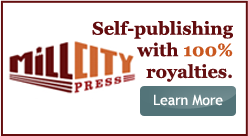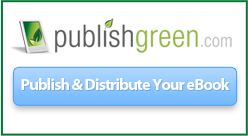What Is an ISBN Number & How to Get One
What is an ISBN Number?
The International Standard Book Number (ISBN) is a thirteen-digit number that uniquely identifies a book regardless of format (hardcover, paperback, audio, eBook, etc). Books published before January 1, 2007 had ten-digit ISBNs. Since then, thirteen-digit ISBN numbers have become standard. An ISBN number is needed to sell your book through online or offline booksellers. Each edition of a book, whether in paperback, hardcover, eBook, audio, or other such form, requires a separate ISBN. This number, which is also embedded in the bar code on the book, allows libraries and booksellers to find information about the author, the author’s book, the book’s price, ordering information, and other related information. The ISBN attached to the book lists the publisher as the party to contact for information.
How To Get an ISBN Number
As said already, if you have different formats of your book (e.g., paperback, .mobi/Kindle, .epub, etc.) you will need different ISBNs for each. If you’re buying ISBNs on your own, you can either buy a single one for $125 (be aware that industry professionals are able to tell by the number that the book is a single “self” publication rather than part of a standard publisher’s block of numbers), or you can purchase a block of ten for $275 (which includes processing fees). You can assign them to any versions of any books you write (e.g., if you write three books and each has an eBook, paperback, and hardcover edition, you’d use nine of the ten ISBNs purchased). You can complete the entire ISBN process online. A non-priority application takes about ten days to process.
Beware: Do not buy a single ISBN through any third party. Buy only through Bowker. If you see an offer for a single ISBN that is less than $125 and is sold from a third party, don’t buy it. The problem with those “single” ISBNs purchased from third parties is that they come from a “clearing house.” Frequently those ISBN prefixes start with a 615, and when an author puts one of these third-party-purchased ISBNs in his or her book, the ISBN is not associated with the author (or the author’s publishing company name), but rather is associated with the third-party company that sold them the ISBN initially. This can get messy.
Should You Obtain an ISBN or Use a Publisher’s?
If you’re published by a traditional press, you’ll have to use theirs. If you’re published by a self-publishing company, the company will likely require that you use theirs. Most publishers (both traditional and self) purchase ISBNs in blocks (the smallest is a block of ten). The publisher, as purchaser/owner of the ISBN, assigns an ISBN to each edition of the book the author has licensed it to publish.
Most self-publishing companies won’t allow authors to use an ISBN that the author purchases directly for the version of the book the company publishes. Some publishers allow authors to provide their own ISBNs, but that can be more hassle and cost than it’s worth. The author is able to publish a version of the book either during or after the term of your contract with the publisher, using a directly purchased ISBN (assuming there is a contract that allows for that). The advantage: if you terminate your contract with the publisher, your ISBN is already in place and wouldn’t have to be swapped out of the book’s interior. The downside is that there will still be complications involved with the original publisher related to handling orders and royalty payments.
Once the ISBN has been assigned to a book, it should be reported to R.R. Bowker, the database of record for the ISBN agency. Your book can be listed for free in R.R. Bowker’s Books In Print database as long as you submit the information about your title at http://www.bowkerlink.com.
If a publisher wants to charge you for submitting your book’s information to Books In Print, make sure the charge is reasonable, because there is no fee to register at Books In Print. Of course, it takes time for a publisher’s employee to handle these things, and a fair fee is certainly reasonable.





